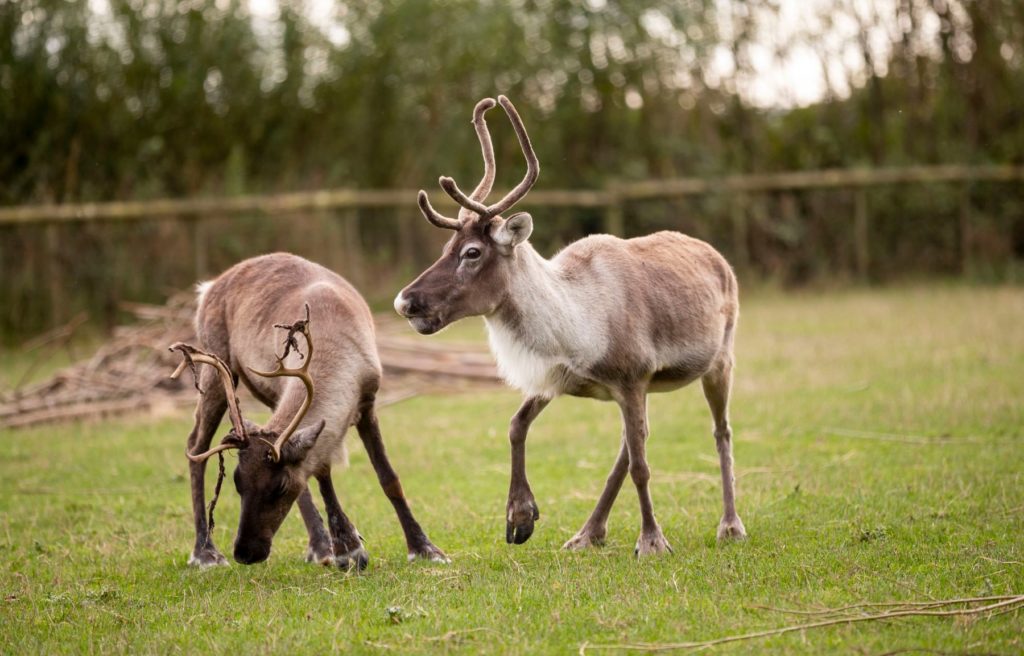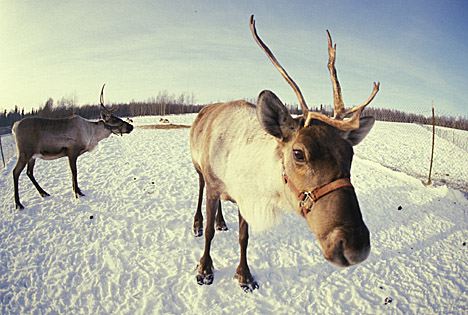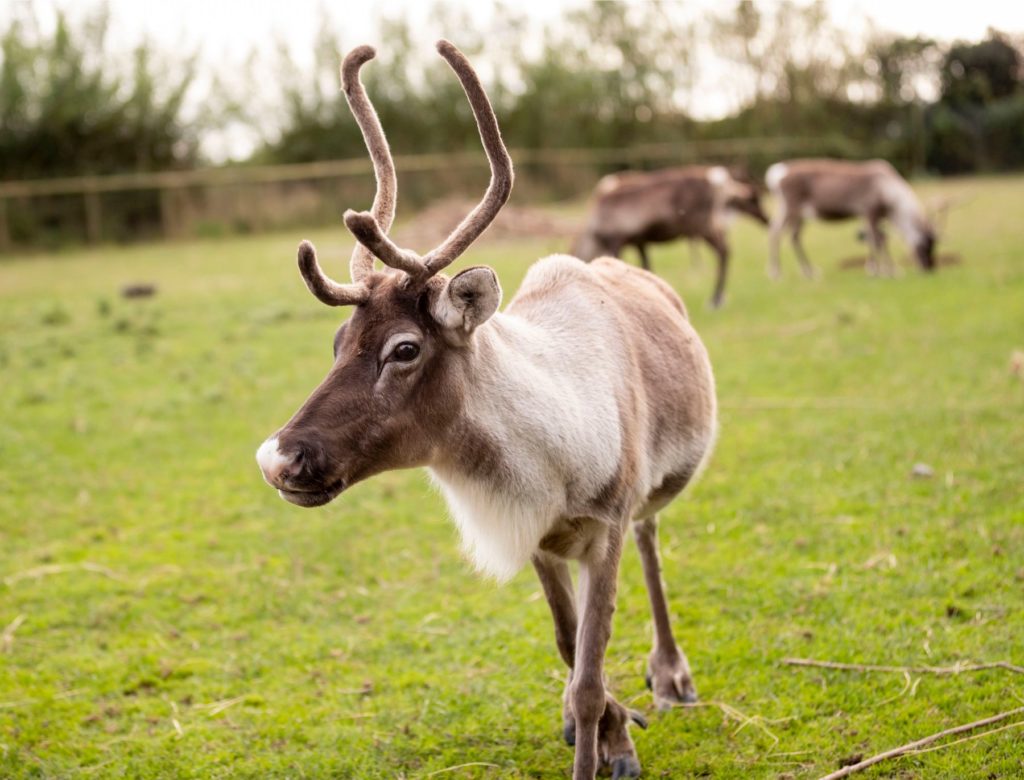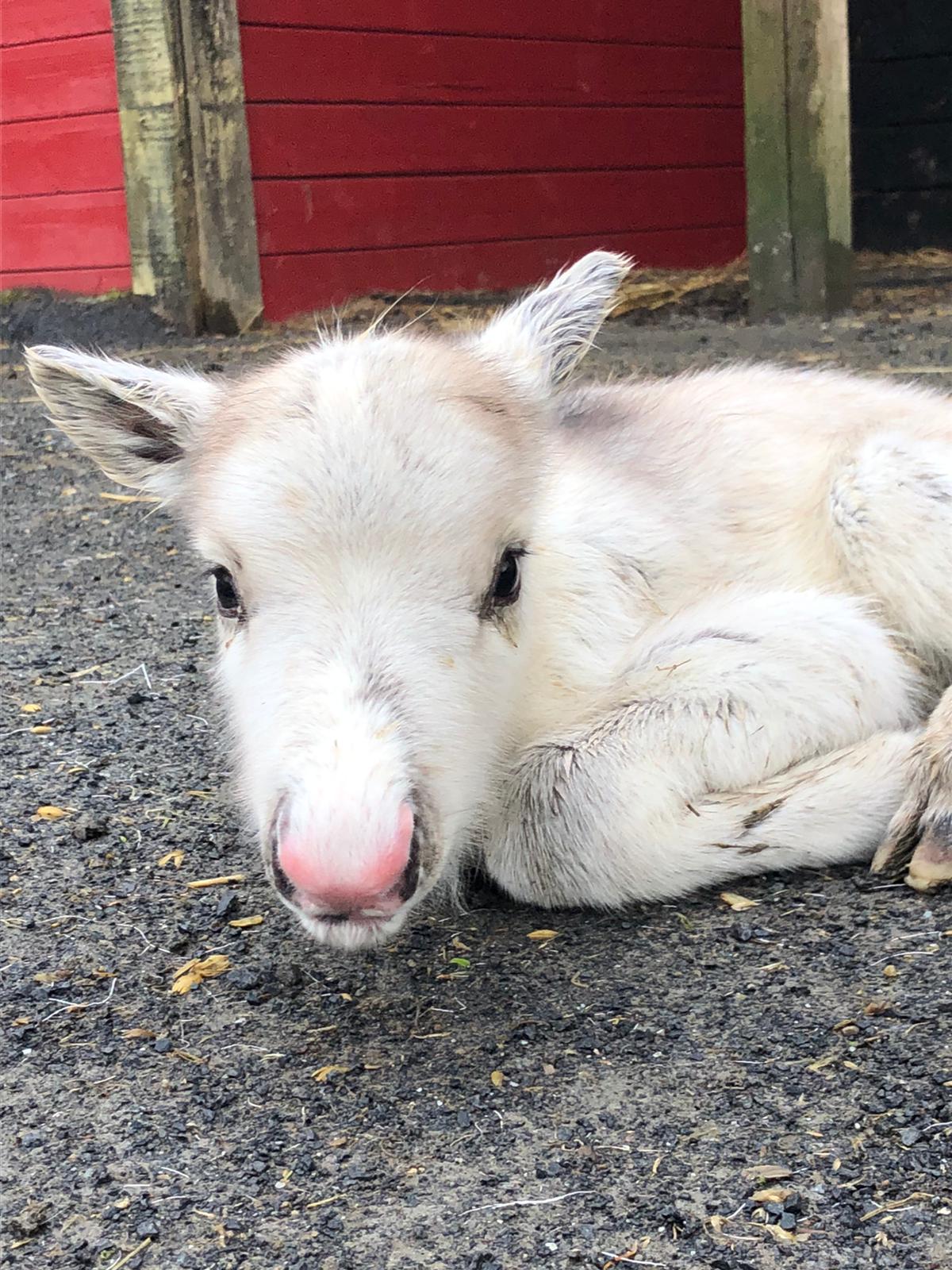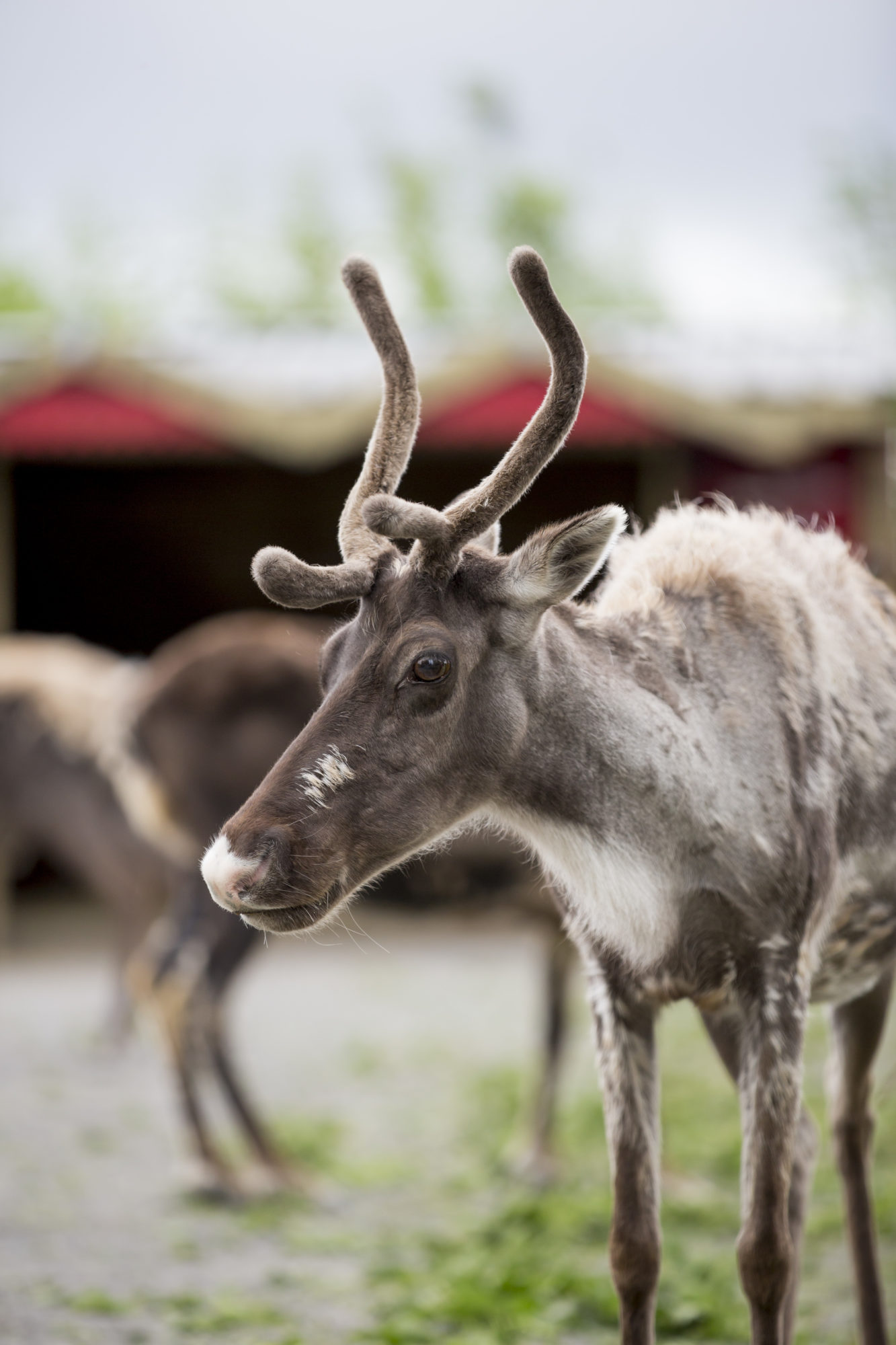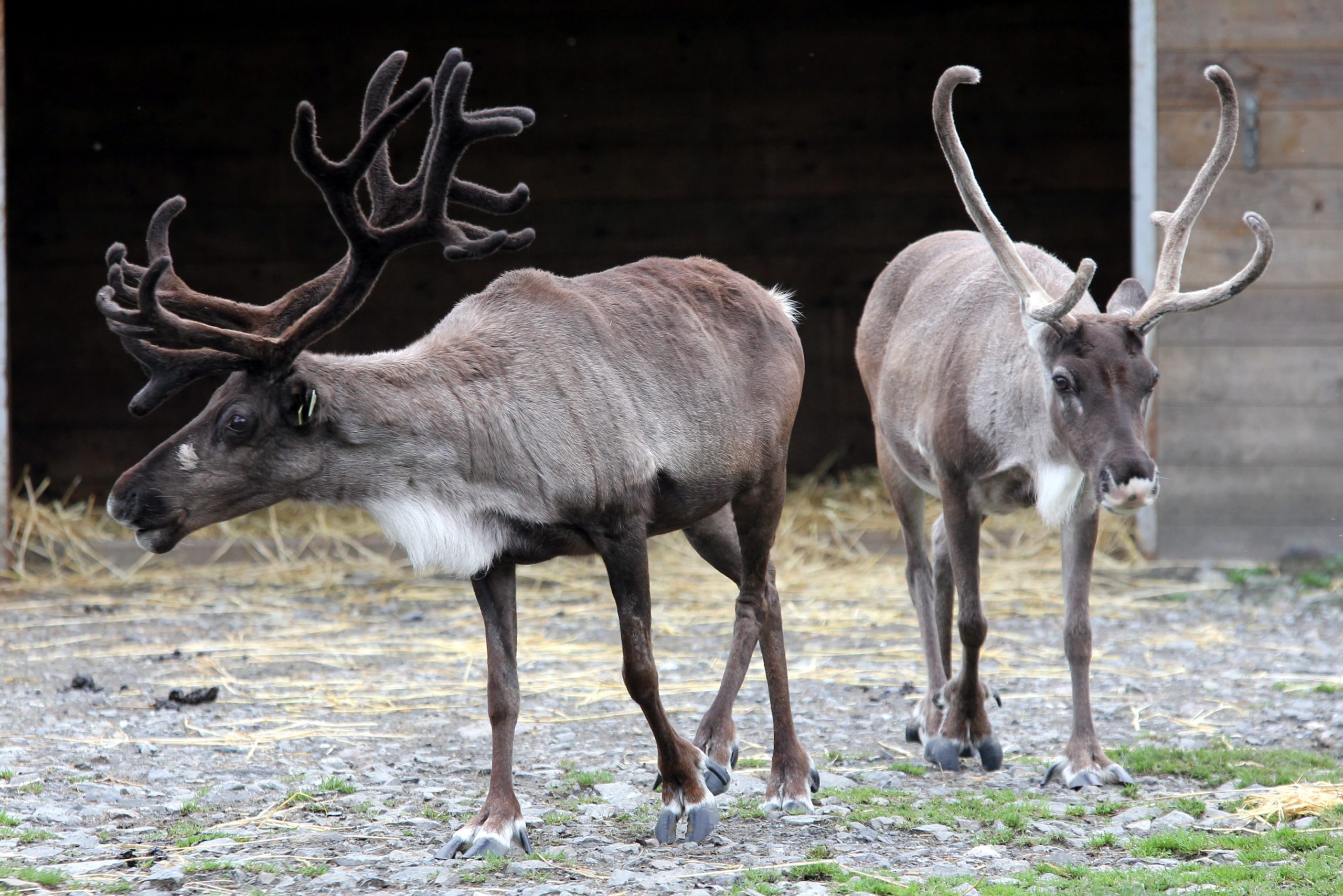

It doesn’t have to be December to appreciate these beautiful creatures.
You can find reindeer (or caribou) to the north in the arctic and subarctic regions of the planet. They like to move around a lot and rarely stay in one place for very long. They have been known to cover up to 3,000 miles in a year…that’s roughly the distance from Folly Farm to Toronto in Canada!
It’s not really much of a surprise that Reindeer have very thick coats. In fact, they have a double layered coat designed to keep them really cosy in chilly temperatures.
Although considered ‘least concern’ there are efforts to maintain the population further. The ‘WWF’ charity for instance, work with local people in order to find ways of reducing their impact on the environment through forestry, mining and reindeer herding. Plus, Santa’s got eight and they’re really well looked after!
Latin name
Rangifer tarandus
Class
Mammalia
Order
Artiodactyla
Family
Cervidae
Conservation status
Least concern
Impress your friends with everything you know about reindeers!
Domesticated reindeers are mostly found in northern Scandinavia, Russia, and Iceland where they were introduced by humans in the 18th century.
They do…massive in fact, anywhere between 50,000 and 500,000.
They’re vegetarians so that means they don’t eat meat at all just anything green. Mainly lichen, fungi and leaves.
Lions hunt for food every few days. They will feed from their kill and then rest until they hunt again. We follow this pattern in zoos, as our lions have two “starve” days out of seven. They usually kill medium sized mammals, such as zebra, deer and wildebeest. They often eat animals which have been killed by another hunter, such as hyenas. At Folly Farm we feed our lions chunks of meat. We also give them whole dead animals to eat. It’s good for them to eat the whole animal, as the fur, skin and bones give their teeth a good clean. It also helps with ‘enrichment’, which means getting our animals to act as they would in the wild.
They certainly can. They have been recorded at speeds of between 36-48mph. The fastest man on the planet Usain Bolt runs at 27mph. How fast can you run?
